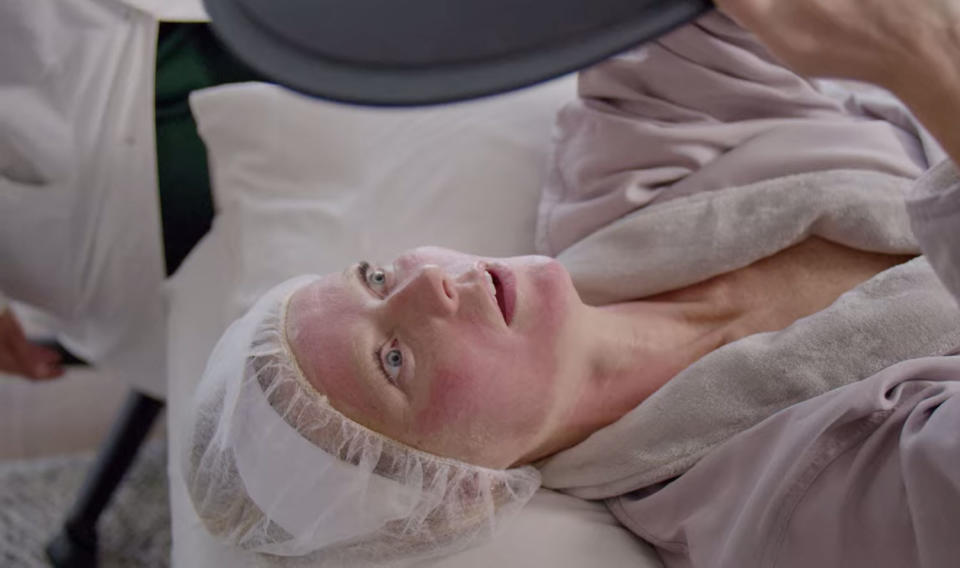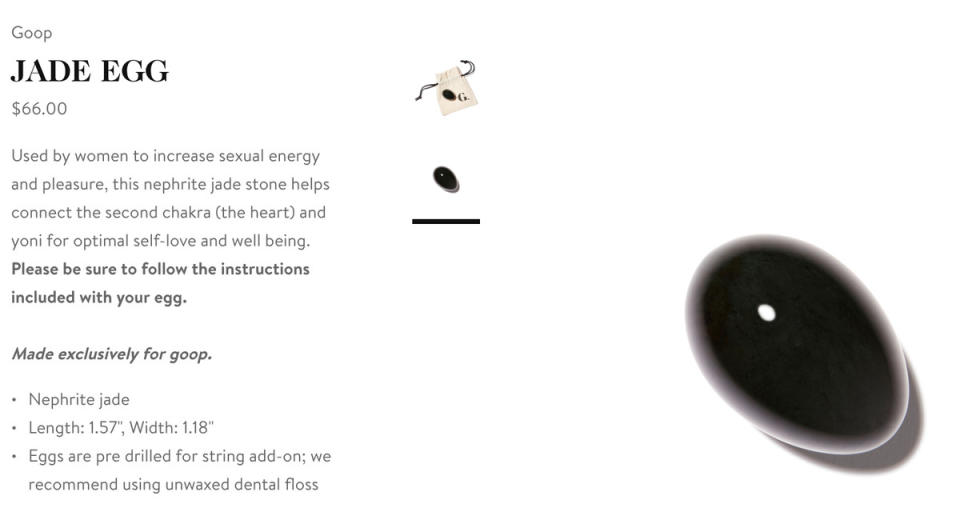Netflix faces criticism after 'The Goop Lab' premiere

Netflix is stirring up controversy by giving Gwenyth Paltrow a platform to share what several critics are calling “pseudoscience” with her new show, The Goop Lab, which debuted this week.
The show, which Netflix files under “provocative” and “quirky,” is described as the following: “Leading with curiosity, Gwyneth Paltrow and her goop team look at psychedelics, energy work and other challenging wellness topics.”
The topics being tackled in the series range from “energy healing,” “psychic mediums” and orgasm workshops to taking psychedelics as a form of therapy and plunging into freezing water to stimulate the immune system.
Along with the Daily Beast calling the show “a nightmare,” Time writer Judy Berman writes: “As with the brand itself, what’s disturbing about the show is that when you combine Gwyneth’s aura of trustworthiness with a mishmash of real science, New Age nonsense, vague female empowerment rhetoric, naked commercialism and some startling knowledge gaps in areas where Goop claims expertise, the result has its unique dangers.”
It’s not all ‘pseudoscience’
But in the show’s defence, some of the featured wellness practices are supported by science. In one episode, for example, it appears that Paltrow is getting a PRP, or platelet-rich plasma, facial (what some call a “vampire facial,” which is a trademarked term) — an anti-aging treatment that’s popular with celebrities.
With the facial, “venous blood is taken from the patient and separated into the cellular component and the plasma component,” Nava Greenfield, MD, of Schweiger Dermatology Group in New York City, explains to Yahoo Lifestyle. “The plasma is then injected or topically applied back to the patient in specific locations. It can be used for hair loss, or in combination with micro-needling for the face. Micro-needling is a popular procedure where tiny needles are used to induce a specific kind of injury to the first and second layer of skin, promoting collagen synthesis. When used in combination with PRP, superior results are often obtained.”
Although it may sound “out there,” the facial stimulates the production of collagen to help “tighten, smooth, and improve skin tone,” according to the Cleveland Clinic. As with any injection, the treatment does carry a small risk of bleeding, pain or infection, but is considered safe.

No shortage of vocal critics
Still, plenty criticise The Goop Lab (or really, anything Goop or Gwyneth Paltrow-related, for that matter), and question the legitimacy and safety of some of the practices in the series, pointing out the lack of objective experts. But while many may view the decision as an oversight, Elise Loehnen, chief content officer at Goop and executive producer of The Goop Lab, suggested to Fast Company that it was deliberate: “We felt like we would be manufacturing drama by trying to find a detractor.”
Timothy Caulfield, professor in the Faculty of Law and School of Public Health at the University of Alberta in Canada has been vocal about his criticism of The Goop Lab, writing on Twitter that the series is “an infomercial for [Paltrow’s] pseudoscience business” — a business worth an estimated $250 million.
“The topics covered are classic wellness woo: a mashup of the supernatural, spiritual and science-y,” Caulfield tells Yahoo Lifestyle. “Some topics, like the cold therapy, use the familiar strategy of a powerful testimonial — the 'inventor’ Wim Hof — with an extreme experience — cold! — and a dash of scientific speculation to make it seem credible.”
Several other doctors, most notably Jennifer Gunter, MD, have repeatedly called out Paltrow and Goop in the past for what Business Insider calls “scientifically indefensible” and potentially harmful health information and products, including the now-famous jade and rose quartz vaginal eggs.

“Goop has some fine advice, for example, [in] an article on sleep on their site,” Gunter said in a statement provided to Yahoo Lifestyle. “They also distribute some dangerous advice, for example drinking goats milk to treat parasites (the parasites are non-existent). When good information is next to harmful and presented in the same way, how can people distinguish? In addition, they sell useless and potentially harmful products, such as supplements.
“Finally, they have used their international platform to advance harmful ideas, many of which are medical conspiracy theories. For example, bras cause breast cancer (they don't), fears about vaccine safety and concerns about fluoride,” adding, “The supplements are not supported by science. At all. The idea that a medium can help with health is as anti-science as one can be; it is the definition of snake oil. So you'll have to ask Goop for the science behind their myriad of false claims.”
‘The spreading of misinformation can have a real impact’
Critics are concerned that those misleading claims will now have an even bigger platform on The Goop Lab, with Netflix’s 167 million subscribers worldwide. Ars Technica’s Beth Mole writes that, on the show, Paltrow’s “ignorance and lack of critical thinking skills are on full display as a parade of questionable ‘experts’” — with the noted exception of sex educator Betty Dodson, PhD — “and ridiculous claims about health and science march across the small screen unchallenged.”
“The spreading of misinformation can have a real impact. Just being exposed to this nonsense can make it seem more plausible, especially if it is packaged in a memorable manner,” Timothy Caulfield tells Yahoo Lifestyle.
“I also think that a show like this adds more noise to an already confused health information environment. In this age of misinformation, it is disappointing to see an entity like Goop, which has a long history of profiting from misinformation, have the opportunity to push more pseudoscience. We shouldn't forget that Goop and Gwyneth benefit financially from the growth of their brand, which is what this show does. It is an infomercial for Goop, not an independent science-informed documentary.”
Yahoo Lifestyle reached out to Netflix for comment.
Got a story tip or just want to get in touch? Email us at lifestyle.tips@verizonmedia.com.

 Yahoo Lifestyle
Yahoo Lifestyle 


